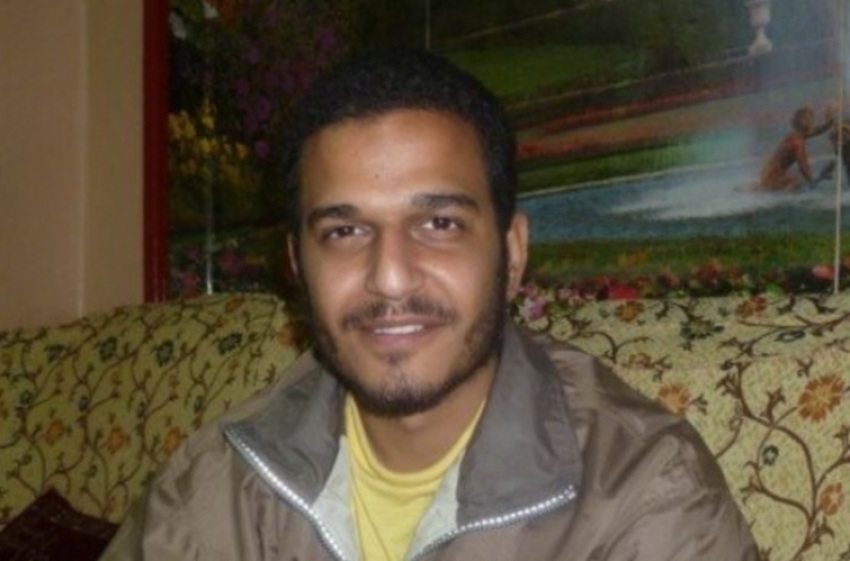Coptic activist arrested on 'preposterous charges' in Egypt; UN agency demands release

The international community is condemning Egypt’s imprisonment of a prominent Coptic Christian activist who they say has been jailed on “preposterous charges” despite the government’s promises to promote religious coexistence.
Activist Ramy Kamel was arrested from his home in late November by seven plainclothes police officers. According to media reports, Kamel was questioned and accused of not only joining a terror group but also broadcasting false information and receiving foreign funding.
Kamel is a prominent member of the Maspero Youth Union, an activist group fighting for equality and civil rights for the long-persecuted Coptic community in Egypt. The organization formed in the wake of weeks for protest in 2011 against the Mubarak government.
Kamel has also written on the mistreatment of Copts in Egypt as well as their displacement from homes by the Egyptian government, according to the nonprofit watchdog group Coptic Solidarity.
“These shocking if not absurd charges appear to be designed to silence Kamel — a leading member and one of the most vocal activists of the Maspero Youth Union,” Coptic Solidarity stressed in a press release. “Kamel is at the forefront of reporting on and sharing footage of the persecution of Copts in Egypt — which many observers believe to be his real crime.”
Security officers are said to have stormed Kamel’s home on Nov. 23 and confiscated his computer, phone, and other items related to his advocacy work. It marked the second time in the month that Kamel had been arrested.
The charges that the Supreme State Security Prosecution announced against Kamel are “spurious,” according to the congressionally mandated commission responsible for promoting religious freedom and making recommendations to the U.S. State Department and White House.
“USCIRF calls on the Egyptian government to immediately release Mr. Kamel from detention and dismiss the preposterous charges against him,” USCIRF Vice Chair Nadine Maenza said in a statement.
“His arrest casts doubt on the sincerity of Egypt’s promises of working toward greater religious freedom,” she added. “Egypt cannot pledge improved rights and freedoms for Copts and other non-Muslim communities, while at the same time bringing false charges against its own citizens who are advocating for those same reforms.”
The United Nations Human Rights Office of the High Commissioner (OHCHR) has also called for Kamel’s release. The OHCHR reports that Kamel was allegedly tortured following his arrests on Nov. 4 and Nov. 23.
“Mr. Kamel’s alleged arbitrary detention and torture fall into a pattern of raids, arrests and travel bans against human rights defenders, journalists, dissidents and their family members,” the OHCHR statement reads. “Individuals who have cooperated or tried to cooperate with UN human rights mechanisms have been repeatedly the target of reprisals.”
Kamel’s arrest drew a response from others in the Coptic community and elicited the social media hashtag movement #Free_Ramy.
It was initially reported that Kamel was to be kept in temporary custody at Tora prison in Southeast Cairo for 15 days. However, Coptic Solidarity reported that Kamel's detention was extended for another 15 days on Monday.
“Evidence of his innocence against spurious charges was ignored,” Coptic Solidarity wrote in a tweet. “He is suffering from acute respiratory distress.”
Coptic Solidarity claims that the “crackdown on Egyptian journalists and human rights activists has reached new levels under President Sisi.”
The nonprofit reports that over 4,000 people — including dozens of journalists and writers — have been arrested for participating in anti-government protests since last September.
The day after Kamel was arrested, Egypt arrested three more journalists.
Amnesty International voiced concern last month that Egypt’s government is using a judicial agency responsible for combating terrorism to prosecute protesters, journalists and critics on false charges without a trial.
“In Egypt today, the Supreme State Security Prosecution has stretched the definition of ‘terrorism’ to encompass peaceful protests, social media posts and legitimate political activities, resulting in peaceful government critics being treated as enemies of the state,” Amnesty International research and advocacy director for the Middle East and North Africa Philip Luther said in a statement.
“The SSSP has become a central tool of repression whose primary goal appears to be arbitrarily detaining and intimidating critics, all in the name of counter-terrorism.”
In her statement, USCIRF’s Maenza called on the Egyptian government to cease the harassment of activists, journalists and others advocating for all of Egypt’s citizens.
Egypt ranks as the 16th worst nation in the world when it comes to Christian persecution, according to Open Doors 2019 World Watch List.
Follow Samuel Smith on Twitter: @IamSamSmith
or Facebook: SamuelSmithCP



























